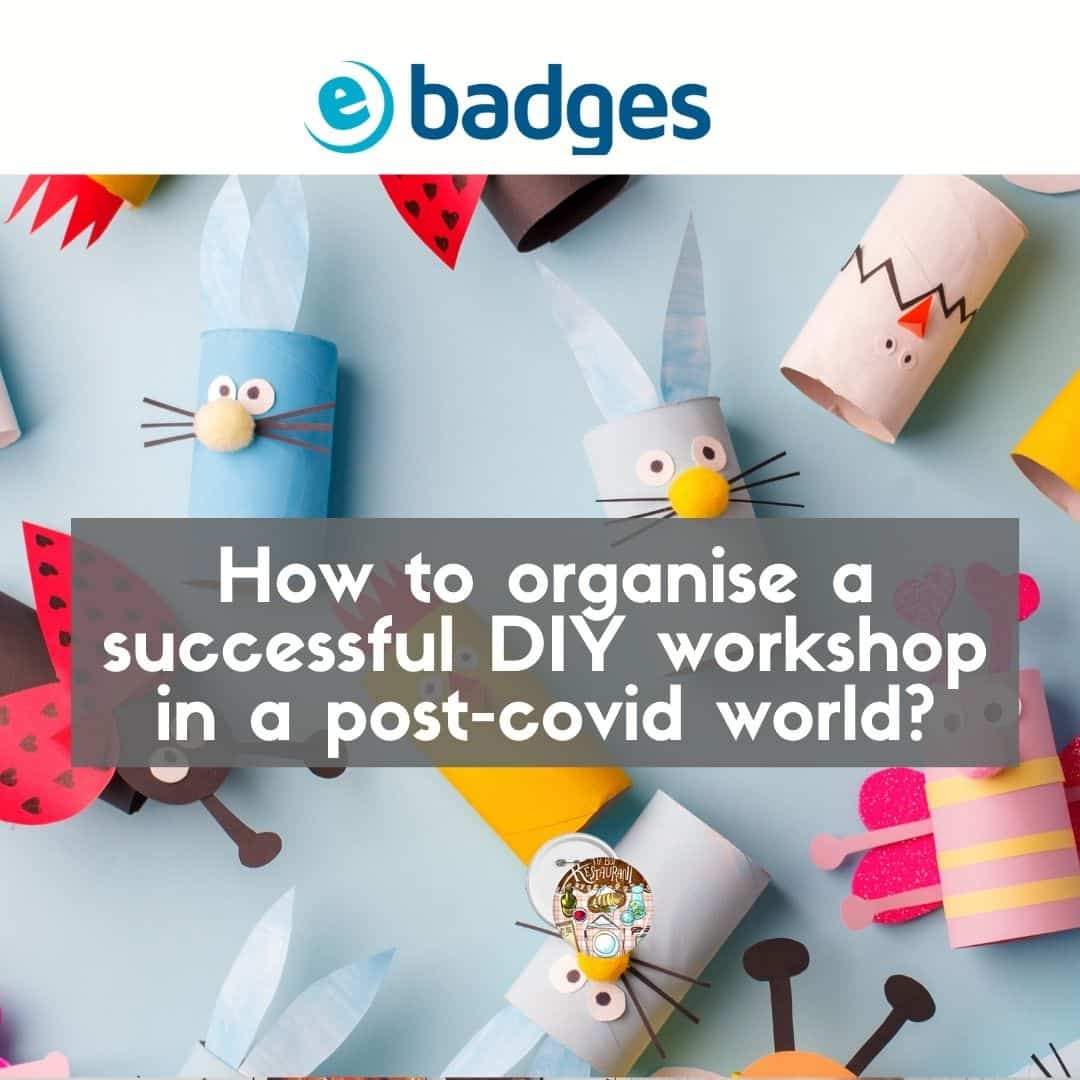As the government’s quarantine requirements for COVID-19 are relaxed throughout the U.K. and Europe, DIY professionals now face the prospect of reopening and offer workshops, after months of shutdown!
Unfortunately, due to the nature of your activity, you can never guarantee that cross-contamination and infection won’t occur. The only thing you can do is take every precaution to ensure that a clean environment is present while doing everything in your power to limit the risk of contamination. By deeply cleaning and disinfecting tables, equipment, and work areas on a regular basis, you are showing to your potential customers that the health and safety of everyone in your workshop come first.
Considerations for a clean workshop
Your workshop must be safe upon returning to business. To conduct a deep cleaning with special emphasis on high-touch surfaces, you need the right cleaning and hygiene products.
. What to look for in disinfecting solutions: efficacy and contact time are two of the most important factors to consider when selecting a disinfecting solution. You want to make sure that the solution you choose is highly effective, while also allowing you to complete routine cleaning and disinfecting tasks quickly. Look for products with a minimum contact time of one minute or less.
. Impact on surfaces and staff: make sure products used for disinfecting are not only gentle on surfaces and people, but also on the environment.
. Clean hands help keep surfaces cleaner. Which products are best for keeping your hands clean? Hand sanitizers come in many different strengths and scents. A registered product will provide assurance and its efficacy should be proven according to the European Norm 150. The minimum required amount of alcohol is 60, .but 70% would be recommended.
. It used to be enough to clean correctly. But now you must make processes that were invisible visible to your customers. Some new measures such as using masks or gloves may not feel as warm and welcoming as previous practices. However, it’s important to take extra precautions when cleaning to show attendees that their safety is your top priority.
. Maintaining social distancing while carrying out a workshop is no easy task. When you’re working with people in face-to-face environments, it’s not always possible to monitor the physical distance between them. It’s important to plan for this by providing instructions on how to set up a safe distance between participants.
. Effective hand hygiene, using alcohol-based hand sanitizer, or washing with soap and water, is the greatest single measure your and attendees can take to prevent the spread of microorganisms.
. Evaluate and enforce strict limits on occupancy with a more limited number of attendees. Changing layouts can help to ensure a safe environment.
Website Messaging about reopening
Your website or Facebook page are the place where potential customers go to get information from your DIY activities and workshops. Make sure you keep this information up to date and accurate.
- Make sure you have clear policies and procedures online regarding post-covid activities
- Make your website and FB page are resources for your activities to keep your customers in the loop about reopening.
- Use video messages to enhance cleanliness and make potential customers feel comfortable with their surroundings
Planning your workshop
Plan your different workshops and their programmes well in advance.
Your workshop should be prepared like a course. Divide it into several parts:
– a part introducing the techniques used (short history and origins, description of materials and tools, presentation of techniques and uses…),
– a question/answer and exchange part,
– the practical part of making the object and finally feedback (take advantage of the firing of the object, for example, to discuss the difficulties encountered, everyone’s opinions on how the course went, etc.).


